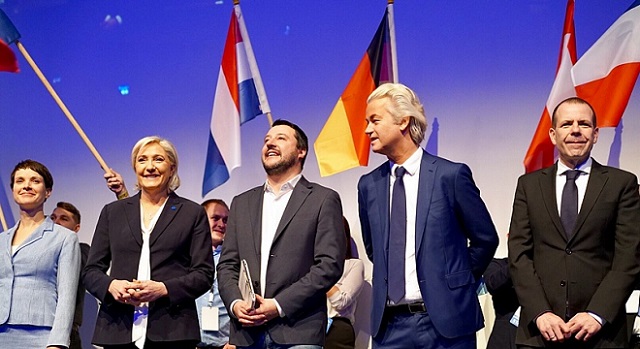
Vienna, Austria | AFP | For Europe’s nationalist parties, winning votes is the easy bit. The real challenge lies in keeping internal strife at bay. Just ask the Alternative for Germany (AfD) or the French National Front.
On Monday, a day after becoming Germany’s third-largest force in parliament, AfD co-chief Frauke Petry announced she would not sit with the party in parliament because of “dissent”.
Her bombshell brought into sharp relief the challenges that the first major right-wing party to sit in the Bundestag since 1945 will have keeping all its diverse strands united.
The AfD began life as a party opposed to the euro but moved sharply rightwards with provocative posters attacking Islam and questioning Germany’s culture of atonement for its Nazi past.
France’s National Front (FN) meanwhile saw Marine Le Pen triumphantly make it into the second round of the country’s presidential election in May, only to lose to Emmanuel Macron.
The party, whose image Le Pen had softened since the days of her more hardline father and predecessor Jean-Marie, then won just eight seats in parliament.
Since then, the FN has been riven by divisions and earlier this month Florian Philippot, Le Pen’s right-hand-man and chief strategist, quit in a huff.
Philippot was unhappy about the “terrible backward slide” of moving away from economic nationalism and social issues and back to issues like immigration and national identity.
His enemies blamed him for concocting Le Pen’s electoral proposal to bring back the franc, despite polls showing French voters running scared from the plan.
Jean-Yves Camus, a French expert in European far-right parties, said that both the AfD and the FN failed to keep the balance between their moderate and more extremist strands just when success seemed close.
“Achieving critical mass is not enough, you also need to know what to do with it,” Camus told AFP. “There comes a time when the anti-system concrete fails to congeal.”
 The Independent Uganda: You get the Truth we Pay the Price
The Independent Uganda: You get the Truth we Pay the Price





